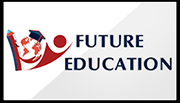MOOCS: DESIGN OF A TEACHING METHODOLOGY FROM A HUMANIST UNDERSTANDING
DOI:
https://doi.org/10.17501/26307413.2018.1105Keywords:
Massive open online courses, MOOCs, social learning, humanized learning, teaching methodologyAbstract
This paper outlines the characteristics of MOOCs (Masive Open Online Courses) and their development and tendencies that seem to indicate a process of dehumanization. This could be considered the basis of problems that this teaching modality is demonstrating. Firstly with the achievement of their stated objective of being a solution to the problem of mass training for life, as the potential beneficiaries of MOOCs are abandoning this type of course massively. Taking this point as the background issue, the central objective of this paper is to research a group of factors which, in the opinion of the authors, contribute to the humanizing of MOOCs, and to infer from them principles which it is considered must be applied to support a humanizing methodology to be developed, one which in turn motivates and helps the students in their purpose to achieve the training and knowledge they need to survive in this and a future knowledge based society.
Downloads
References
Aguaded, I. (2013). The MOOC Revolution: A New Form of Education from the Technological Paradigm? Comunicar, 21(41), 07-08. (DOI: http://doi.org/tnh).
Alina Padrón, V., Lázaro Cruz, R., & Anabel Vizcaino, M. (2011). he teaching and learning process of the Spanish class. Education and Development Notebooks (24), 34-45.
Atiaja, L. A., & Guerrero R., 2016. The MOOCs: Origin, characterization, principal problems and challenges in Higher Education. Journal of e-Learning and Knowledge Society, 12(1).
Bayne, S., 2015. Teacherbot: interventions in automated teaching. Teaching in Higher Education, 20(4), 455-467.
Bernal, M.C. y Prendes M.P., 2017. Massive online open courses: case study longitudinal.. RIITE. Revista Interuniversitaria de Investigación en Tecnología Educativa, 2, 54-67. Doi: http://dx.doi.org/10.6018/riite/2017/297221
Castellanos Simons, Doris, Castellanos Simons, Beatriz, Llivina Lavigne, Miguel Jorge y Silverio Gómez, Mercedes. (2001). Towards a conception of developer learning. Havana: Higher Pedagogical Institute"Enrique José Varona".
Coll, C. (Ed.)., 2008. Psychology of virtual education: Learning and teaching with information and communication technologies. Ediciones Morata.
Conole, G. (2013). MOOCs as disruptive technologies: strategies for enhancing the learner experience and quality of MOOCs.
Feenberg, A. (2003). Modernity theory and technology studies: Reflections on bridging the gap. Modernity and technology, 73-104.
Fermoso, P., 1985. Theory of education. An anthropological approach.
Freire, P., 2000. A biobliography. XXI century.
HERMANN, A., 2014.The use of computers and digital technologies in learning processes in the digital age.
Hernández, J., 2016. The MOOC as a practice of libertarian pedagogy possible reality for the XXI century. January 1st, 2016. Vol. 17. Number 1. ISSN 1607 – 6079.http://www.revista.unam.mx/vol.17/num1/art05/
Kasabube, M. K., & Hernández, W. G. (2017). Methodological strategy to achieve developing evaluation in mathematics at the Kuando Kubango, Angola teacher training school, Angola. Góndola, enseñanza y aprendizaje de las ciencias, 12(1), 73-91
Lizarazo, D. (2010). Representations and meanings of information and communication technologies in primary and secondary school.
Leontiev, A. A ., 1979. Pedagogical communication. Editorial Znanie. Moscú.
Leontiev, A.A., 1983. Tvorcheskij put A.N. Leontieva [The scholarly career of A.N. Leontiev]. In A. Zaporozhets , V. Zinchenko , O. Ovchinnikova , & O.
Leontiev, A.N., 1981. Problems of the development of mind (M. Kopylova, Trans.). Moscow: Progress. (Original work published 1959.)
Leontiev AN. The activity in Psychology.La Habana: Edit. MINED; 1979.
Leontiev AN. Activity, conscience and personality.La Habana: People and education; 1981.
Margaryan, A., Bianco, M., & Littlejohn, A. (2015). Instructional quality of massive open online courses (MOOCs). Computers & Education, 80, 77-83.
Morris, S. M., & Stommel, J. 2017. Open Education as Resistance: MOOCs and Critical Digital Pedagogy. MOOCs and Their Afterlives: Experiments in Scale and Access in Higher Education, 177.
Nikolakaki, M. (2012). Building a Society of Solidarity Through Critical Pedagogy: Group Teaching as a Social and Democratic Tool. Journal for Critical Education Policy Studies (JCEPS), 10(2).
Popenici, S. A., & Kerr, S., 2017. Exploring the impact of artificial intelligence on teaching and learning in higher education. Research and Practice in Technology Enhanced Learning, 12(1), 22.
Raposo Rivas, M., 2013. Pedagogical guidelines for MOOCs. University of Vigo.
Rico Montero, P., Santos Palma, E. M., & Martín-Viaña Cuervo, V. (2004). Developer teaching-learning process in elementary school. Editorial People and Education. Havana.
Silvestre M, Zilberstein J. Towards a Didactic developer.First ed. La Habana: Ed. People and education; 2003.
Talizina NF. Influences of the ideas of A.N. Leontiev in the development of Pedagogical Psychology. In: A.N. Leontiev and contemporary psychology. Moscú: Ed. University of Moscú; 1983.
Tikhomirov (Eds.), A.N. Leontiev i sovremennaja psihologia [A.N. Leontiev and modern psychology] (pp. 6-39). Moscow: Moscow University Publishers.
Tumino, M., Bournissen, J. M., & Carrión, F 2017. MOOC: Proposal and measurement of perceived quality. In XIX Workshop of Researchers in Computer Science.(WICC 2017, ITBA, Buenos Aires).
Vygotsky, L., 1964. Language and thought.Lautaro.
Vygotsky, L.S., 1979. The development of higher psychological processes. Barcelona: Criticism.
Vygotsky, L. S., 1984. Learning and intellectual development at school age. Childhood and learning,7(27-28), 105-116.
Downloads
Published
How to Cite
Issue
Section
License
Copyright (c) 2019 Authors

This work is licensed under a Creative Commons Attribution 4.0 International License.






